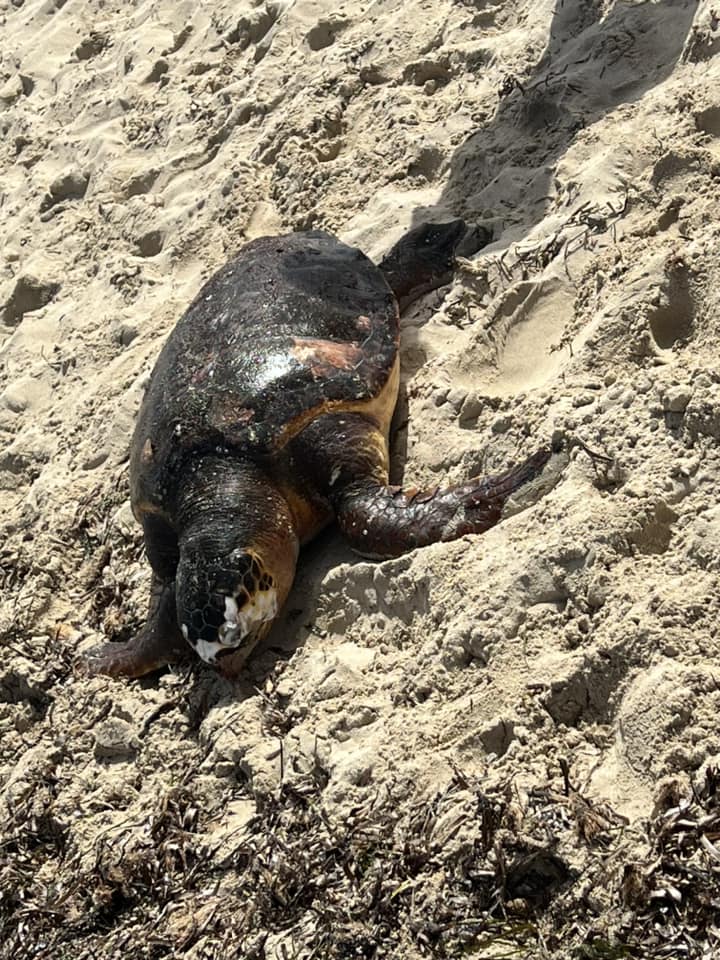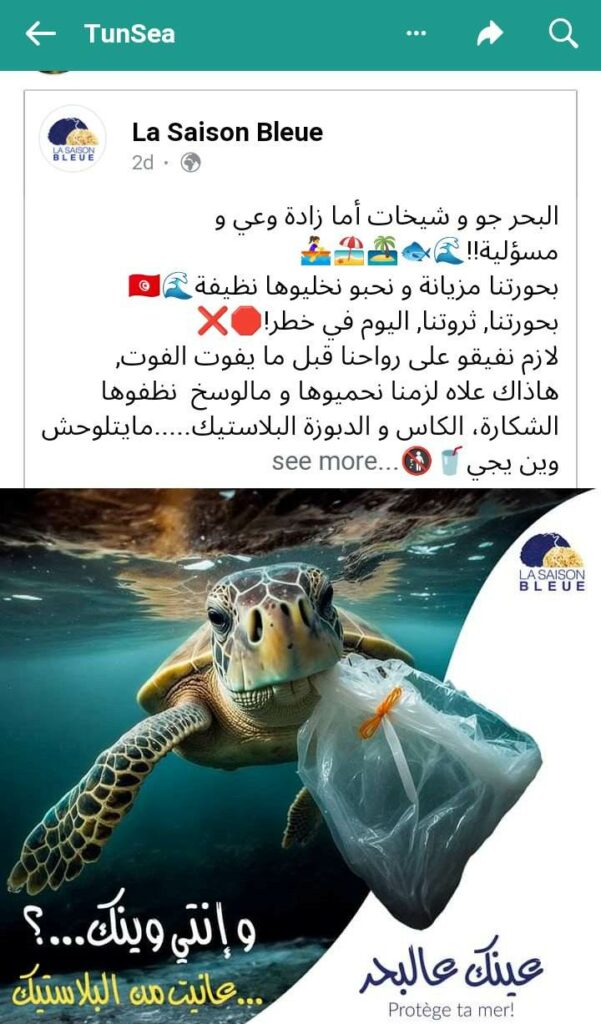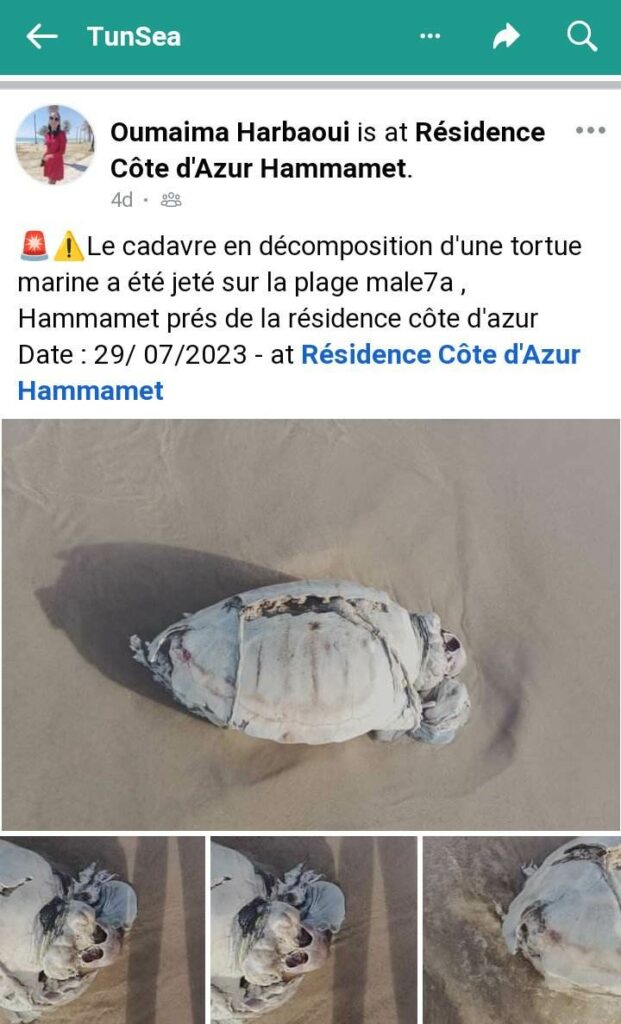Sea turtles wash up dead on Tunisia’s beaches

By Rania Loghmari
Tens of sea turtles wash up dead on the coast of Tunisia, setting many on alert.
The Mediterranean is well celebrated for its rich marine life. However, in recent years, such rich marine fauna has unfortunately been under dire threat as several sea turtles have been found dead, or suffocating, on Tunisian beaches.
The debate on the Facebook group TUNSEA, which brings together marine life experts, marine consevation activists, and citizens interested to learn about the blue world’s secrets has constituted a generous platform for all these parties to share knowledge, information, and news.
Everyday, members of this Facebook group documented new cases of sea turtles perishing due to pollution, which underscores the extent to which the situation has become alarming.

Looking for a scientific explanation, we reached out to Association TunSea pour la Science Participative, a Tunisian association that helps protect marine life in Tunisia and raise awareness about the dangers facing marine life in the Mediterranean region. According to them, “the stranding of sea turtles is not exactly a natural phenomenon. It is mainly due to interactions with fishing gear, as well as a number of other reasons,” namely pollution.
Pollution, especially plastic thrown in the sea and industrial waste pumped from Gabes’ industrial zone, has disturbed the natural equilibrium of sea life. Many people have been complaining about the invasive number of jellyfish in Tunisian beaches, especially on the shores of Bizerte and Sousse.Well, blame the turtles, or their lack of!

You see, turtles feed on jellyfish amongst other things. But with the increase of plastic thrown into the sea, sea turtles feed on floating plastic bags, mistaking themfor jellyfish; resulting in suffocation.
Association TunSea pour la Science Participative also reports that, ‘‘at Tunsea, we talked much about this phenomenon and helped share awareness, both on the official page and the Facebook group, to report cases of stranding on the group page, where experts can determine the reasons behind this phenomenon,” adding that, “this is the very spirit of TunSea, which is based on participatory science. The association also says that “a Master’s degree was developed on the subject by Mr. HamedMallat, one of the leading group members of TunSea and a Marine expert regarding the topic, and the results were presented at an international scientific symposium in Morocco where Hamed received the best prize.

Yet, marine conservation efforts by Tunisian sea lovers as well as marine experts have doubled in recent years, striving to protect the turtles, especially in the island ofKuriat near Monastir. These Tunisian sea lovers protect the nests of the turtles and ensure they safely lay eggs on the beach, by protecting them from animal predators, tourists and beach dwellers, as well as making sure the newly-hatched baby turtles safely reach the water. Expert Marine Biologist ImedJridi gladly confirms that “in 1997, there were only 11 nests;” whereas in 2020, there was “between 40 and 45 nests each year.”
Rania Loghmari is educator, scholar, and writer. She writes about current issues, health, well-being, and biodiversity.

